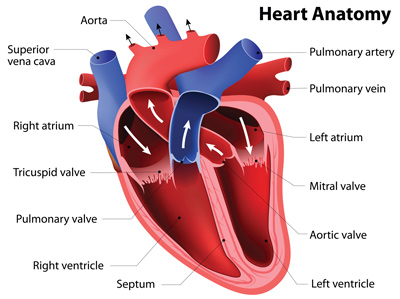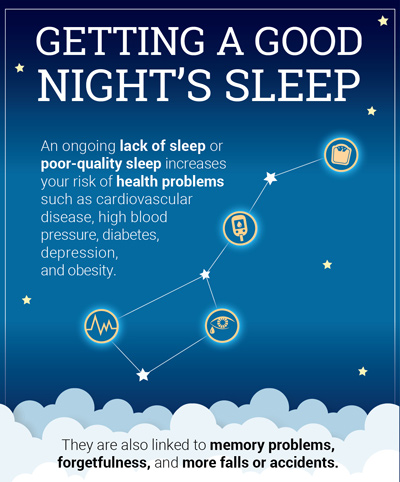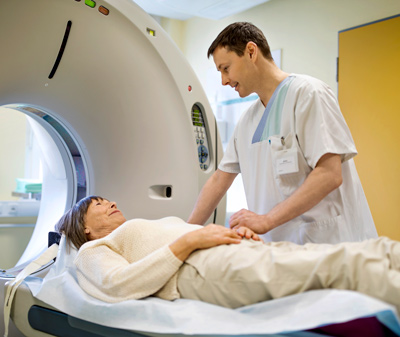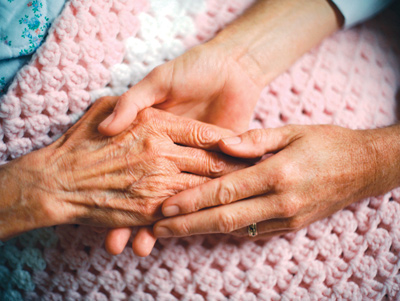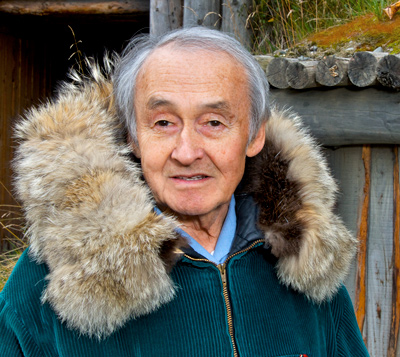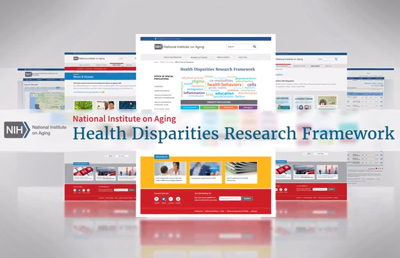Resources To Stay Healthy as We Age
Certain conditions affect people as they reach older age. There are many things that people can do to stay healthy and active as they age.
The resources below are brought to you by the National Institute on Aging (NIA), a part of the National Institutes of Health (NIH), and other agencies within the U.S. Department of Health and Human Services (HHS). The NIA supports and conducts research to better understand the aging process, as well as diseases and conditions that can occur as we grow older, such as Alzheimer’s disease and related dementias.
Featured Health Information
The webpage Heart Health and Aging demonstrates the importance of heart health as well as steps you can take to keep your heart healthy. People age 65 and older are much more likely than younger people to have a heart attack, to have a stroke or to develop heart disease and heart failure. Heart disease is also a major cause of disability, limiting the activity and eroding the quality of life of millions of older people.
Research findings lend insights into what activities may help older adults stay healthy. We all know to eat right, exercise and get a good night’s sleep; but can flexing our creative muscles help us thrive as we age? Ongoing research looking at singing group programs, theater training and visual arts for older adults suggests that participating in the arts may improve the health, well-being and independence of older adults.
The “Getting a Good Night’s Sleep” infographic shows how not getting enough sleep can affect all areas of your life and cause health problems. Learn how to develop healthy habits at bedtime as you age to help you get a good night's sleep. Share the infographic, and help spread the word about ways to improve your sleep.
Learn about the biomarkers used in Alzheimer’s and dementia research in this fact sheet. Biomarkers are measures of what is happening inside the living body, shown by the results of lab and imaging tests. Doctors and researchers use many types of biomarker tests for research on Alzheimer’s and dementia.
If you are a health care proxy and making end-of-life care decisions for someone you love, this NIA article can help. End-of-life care describes support and medical care given during the time surrounding death. Read about how to provide physical, emotional and spiritual comfort to relieve suffering when caring for a loved one who is dying.
The NIAMS Health Information for Older Adults/Seniors webpage offers shareable resources to help the older people in your community to stay healthy and manage conditions that affect their bones, joints, muscles and skin. The NIAMS wants to help create opportunities to raise awareness of conditions that affect people at different stages in their lives and to promote healthy habits that will benefit them for life.
The Administration for Community Living (ACL), part of the HHS, recently launched a redesigned Eldercare Locator website. The updated site makes it easier for older adults and their caregivers to find essential aging resources in their area.
Events
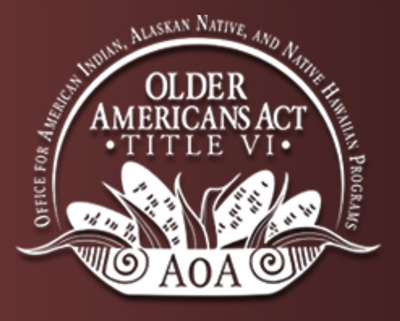
Save the Date: National Title VI Training and Technical Assistance Conference
August 5-8, 2019
Minneapolis, Minnesota
For more information, contact Tara Nokelby at [email protected]
Funding Opportunities
The NIA Health Disparities Research Framework showcases priorities and investments in this important aging research area. It serves as a resource for scientists interested in investigating health disparities related to aging. The Framework outlines four key levels of analysis related to disparities research—environmental, sociocultural, behavioral and biological—with priority focus areas in each level. Visit the Framework online, or watch this short video overview.
